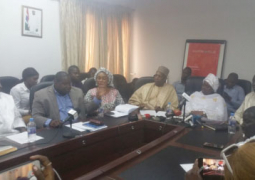The report on The Gambia’s membership of the new and innovative institution was tabled at parliament by the country’s Finance Minister.
Africa50 is an African-led initiative with early capital commitments from African governments and the African Development Bank.
As an investment bank, it focuses on financing high-impact national and regional infrastructure projects on areas of critical need in Africa: energy, transport, ICT and water sectors.
A UN report has it that Africa’s present poor infrastructure is slowing its economic development.Therefore, African countries need to promote industrial development to spur economic progress and reduce poverty, according to the United Nations Conference on Trade and Development (UNCTAD).
Africa’s share of global manufacturing is drastically disproportionate to its population. While 15 per cent of the world’s population lives in Africa, only about one per cent of global manufacturing takes place there.
This is largely due to poor transport, communications and energy infrastructures, says UNCTAD’s Economic Development in Africa report.
However, the coming of Africa50 is expected to tackle this infrastructure deficit as it put in place innovativeness to facilitate and accelerate infrastructure delivery in Africa.
It is designed to significantly narrow the infrastructure finance gap in Africa.Experts said Africa infrastructure financing needs are estimated at US$95 billion per annum but at present, less than half of the amount is being mobilised.
Africa50 is to work on closing this financial close and shortening the time between project idea development and financing from an average of seven years to less than three years.
The Finance Minister said this will be accomplished through substantially increased funding of early stage project development activities, which will be made possible by innovative partnerships and incentive schemes.
The development and modernisation of infrastructure remained critical to Africa’s future economic competitiveness, facilitating domestic, regional and international trade, and enhancing the continent’s integration into the global economy.
It is hoped that Africa50 will not relent in planning for infrastructure capacity in Africa by mobilising the much-needed fund and make it available to member countries.
“We need to stop thinking about infrastructure as an economic stimulant and start thinking about it as a strategy. Economic stimulants produce bridges to nowhere. Strategic investment in infrastructure produces a foundation for long-term growth.”
Roger McNamee



